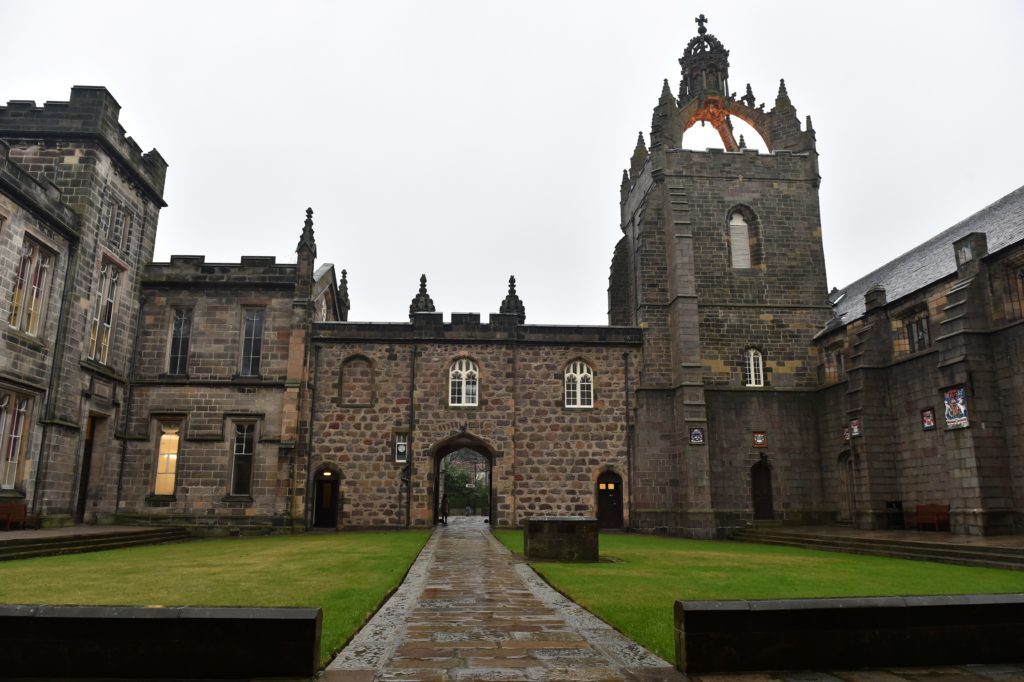
Aberdeen University has today launched the UK’s first postgraduate degree in Energy Transition Systems and Technologies.
The new course aims to reinforce and build upon the city’s reputation as an international energy hub by providing a new generation of engineers with industry-relevant skills and training, as well as career possibilities in all areas of the sector.
It will educate to MSc level and, depending on Covid-19 restrictions, will be available to study full-time on campus in the Granite City from September, or part-time online.
Based in the School of Engineering, with contributions from geosciences and business and law professors, the programme will draw on much of the “ground-breaking” research being carried out at the institution’s Centre for Energy Transition (CET).
With an emphasis on the integration of low carbon technologies (LCTs) into current and future energy systems, the university said the programme will encourage students to take a ‘systems-thinking’ approach to energy transition.
It will also combine technical knowledge with real world aspects, such as economic and political developments.
The need to decarbonise the energy system has been at the top of government’s agendas in recent months with widespread calls to “build back greener” from the Covid-19 pandemic.
Last year, Westminster unveiled its 10-point plan for a green industrial revolution as part of its commitments to reduce greenhouse gases to net zero by 2050.
Similarly in June, the Scottish Government announced a £62 million Energy Transition Fund to drive decarbonisation north of the border.
The north-east has already positioned itself at the centre of efforts to reduce emissions from energy production with projects such as the Kincardine Floating Offshore Wind Farm and the Acorn carbon capture and storage scheme.
Programme director, Professor Russell McKenna said the city’s heritage and global reputation as the energy capital of Europe meant that it was “perfectly placed” to be launch the UK’s first transition degree programme.
He added: “This course was set up to fill a gap and meet a need. In recent years, non-hydrocarbon based energy has grown significantly in Aberdeen due its large talent pool of energy engineers and scientists, and the abundance of wind and ocean energy resources off the Aberdeenshire coast.
“The past 20 years has seen increased interest in more sustainable energy systems. The transition towards these systems has gathered momentum, aided by new technological innovations in areas such as wind and tidal energy, energy storage, carbon capture and storage, biofuels and hydrogen. Energy transition, however, continues to pose significant technological, commercial and political challenges for businesses and governments.
“Energy transition engineers are faced with the challenge of redesigning our entire energy infrastructure while ensuring continued access to reliable and affordable energy. To achieve this, we must understand how to successfully integrate LCTs into our current and future energy systems.”
‘Timely and encouraging’
Karl Axel Pétursson, systems engineering specialist at Vestas, said: “We need highly skilled and trained Systems Thinkers to enable renewable energy sources to become an ever larger part of the energy system. The complexity involved is challenging and a systems thinking toolkit is needed to understand both the technical and social aspects of the transition ahead.”
Melanie Onn, RenewableUK’s deputy chief executive, added: “It’s great to see that the University of Aberdeen is breaking new ground with this innovative course, which takes a holistic approach by encompassing all these key aspects in an innovative postgraduate degree programme. We need to attract a wide and diverse range of people into this rapidly-expanding sector and courses like this will create new opportunities in growth industries for the next generation of clean energy entrepreneurs.”
Alix Thom, OGUK’s workforce engagement & skills manager, said: “Today’s announcement by the University of Aberdeen, already respected globally for its world-class energy programmes in oil and gas, is both timely and encouraging.
“Courses like this will be key to harnessing and promoting the creative thinking that is required to develop solutions to unlock the challenge of net-zero.”
Alex Murley, head of project management & optimisation at RWE Renewables, said: “Aberdeen has long been at the forefront of national and regional energy technology transitions.
“In the year of Scotland’s hosting the 26th United Nations Climate Change conference (COP26), and in the context of gathering global consensus regarding the required scale, speed, and form of societal transition required to meet Net Zero Carbon objectives, it is comforting to see the University of Aberdeen launch a new degree programme dedicated to creating the industrial and academic leaders of this energy transition’s future.”
Ander Madariaga, grid & connections lead at Ocean Winds, said: “Ocean Winds is committed to local content and benefiting the local communities hosting our projects. We are therefore keen on supporting energy programmes by Scottish Institutions such as Aberdeen University School of Engineering and its new Energy Transition Systems and Technologies MSc Programme.
“We are looking forward to engaging with the graduates in their specialisation journey on Energy Systems and Technologies on our collective travel towards NetZero2050. Ocean Winds is a key global player, with ambitious expansion plans, open to meet new talent considering their future into this young and dynamic industry. Subject to our growth in the UK, we are seeking to engage with Aberdeen University and others by means of teaching activities, career fairs and hosting interns in our exciting project portfolio.”
Recommended for you


 © Supplied by Aberdeen University
© Supplied by Aberdeen University